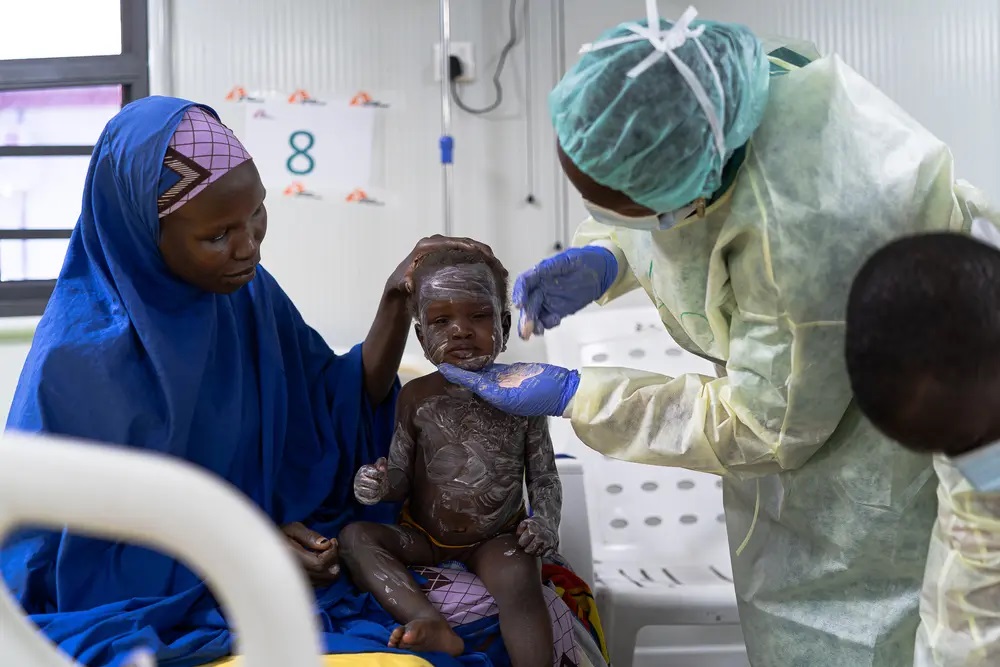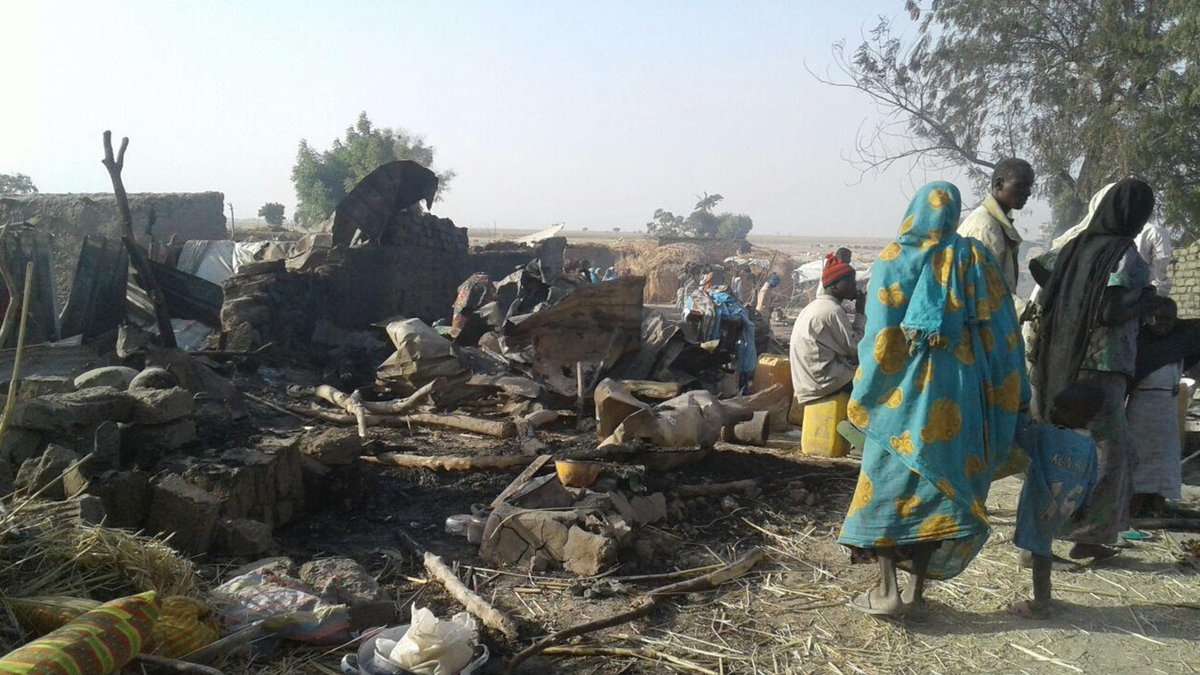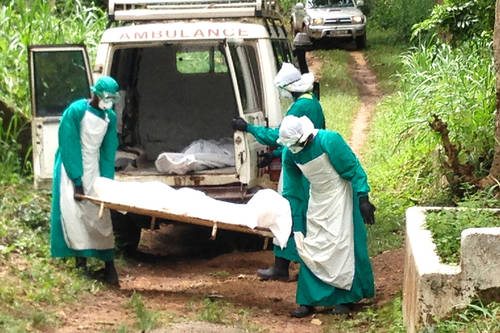Health
MSF Nurse Wins HIV-TB Prize for Life-Saving Test Research
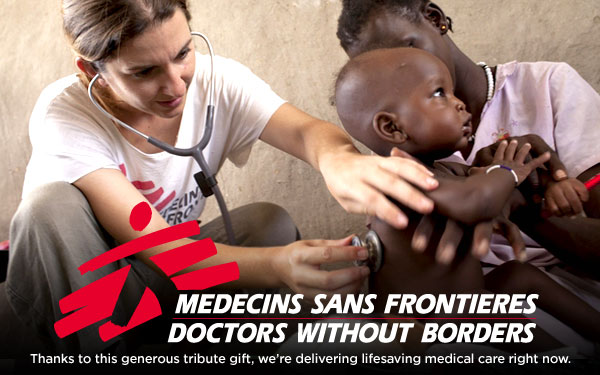
By Modupe Gbadeyanka
Zimbabwean Doctors Without Borders (MSF) nurse and researcher Chenai Mathabire has won an HIV/TB Research Prize at this year’s International Aids Society Conference on HIV Science (IAS2017). Through a study conducted in Malawi and Mozambique, Chenai has provided strong evidence that an easy-to-use point-of-care TB LAM test, which quickly diagnoses tuberculosis (TB) in severely ill HIV patients, is feasible to use in real-life clinics with high numbers of HIV-TB patients.
TB is the biggest killer of people living with advanced HIV, with over 400,000 patients dying each year from the disease.
People with advanced HIV, also known as Acquired Immune Deficiency Syndrome (AIDS) have very weakened immune systems, leaving them susceptible to common infections, which can quickly become deadly.
Successfully treating ill AIDS patients involves rapidly assessing the strength of their immune systems and putting them on the right treatment straight away, whether they have TB or another disease deadly to HIV patients, cryptococcal meningitis.
However, in poorer countries, limited laboratory and X-ray facilities, and the time spent waiting on results can mean long and often deadly delays for sick patients arriving at clinics or hospitals. At the same time, people with late-stage HIV often can’t produce enough sputum for more common TB sputum tests so common tests such as sputum microscopy cannot be done. X-rays are also less useful to detect TB in people with advanced HIV.
At $3 per test, the TB LAM test offers a quick, simple and cost-effective alternative that gives on-the-spot results in 30 minutes. Yet despite being available since 2010, only 140,000 TB LAM tests are used each year.
“In Malawi, some HIV patients with suspected TB were waiting months for laboratory or X-ray results to come back. Clinicians don’t like to start patients on treatment based only on clinical signs and symptoms, they prefer to have a diagnostic test result,” says Chenai, who was responsible for implementing and supervising the study. “The TB LAM test helped them make that decision, and they felt better about starting HIV patients on TB treatment. It doesn’t replace existing tests, but adding this test helps us identify more TB cases and can improve the patients’ chances of survival.”
The test uses the HIV patient’s urine to detect LAM (Lipoarabinomanan), a protein created when TB bacteria cells break down. The lower the patients’ immunity, which is measured by numbers of CD4 T-cells, the more LAM appears in the urine and the more sensitive the test becomes. This is why the test is recommended for use in patients with CD4 cells below 100. The MSF study found the test was well accepted by staff, easy to use, and led to better, faster results than sputum or X-ray tests. Nearly 99% of TB LAM test patients received a timely result, versus 70% with sputum and 35% with X-rays.
Currently the main barrier to wider use of the TB LAM test by national governments is that it isn’t included in country guidelines and national TB programmes are not actively pushing it. Use of the TB LAM test has been recommended by the new WHO guidelines for advanced HIV for use in severely ill patients in hospitals but not yet in primary care, given the test’s decreased accuracy in patients with stronger immune responses.
MSF will use the study to advocate for health ministries in countries with high HIV TB burdens to use the TB LAM test in primary care and hospital centres, as well as include TB LAM within a diagnostic package for patients with advanced HIV. This would include point-of-care tests for CD4 (to allow rapid bed-side assessment of immune strength), cryptococcal meningitis and TB to help quick diagnosis and, most importantly, improve patients’ chances of survival.
MSF currently uses TB LAM as part of a diagnostic package in HIV projects in Democratic Republic of Congo (DRC), Guinea, Kenya, Malawi, Mozambique, Niger, Uganda and Zimbabwe. MSF currently supports over 230,000 people living with HIV on antiretrovirals in 19 countries, with a focus on free quality care, and provides free hospital-based care for people living with advanced HIV in DRC, Kenya Guinea, and Malawi.
Health
SUNU Health Named Most Customer Focused HMO of the Year

By Modupe Gbadeyanka
The decision of the management of SUNU Health Nigeria Limited to adopt the strategy of placing the enrollee and customer at the heart of its operations has started to pay off.
The company was recently announced as Most Customer-Focused Health Insurance Company of the Year at the Customer Service Standard Magazine Awards 2025.
The recognition underscored the company’s success in translating its dedication into tangible enrollee satisfaction and superior market service at the Nigerian Health Maintenance Organisation (HMO) landscape.
It also highlights the organisation’s dedicated efforts in streamlining claims processing, enhancing access to quality healthcare providers, and maintaining transparent, responsive communication channels with its diverse client base across Nigeria.
The accolade further serves as a powerful testament to the successful integration of digital solutions and human-centric service models at SUNU Health.
It positions the firm as a leader not only in providing robust health plans but also in delivering the supportive, personalized care that enrollees truly value.
“Clinching the Most Customer-Focused Health Insurance Company of the Year award is not just an honour; it is a validation of the core philosophy that drives every member of the SUNU Health team.
“We believe that healthcare is fundamentally a service industry, and our success is measured by the well-being and satisfaction of our enrollees,” the chief executive of SUNU Health, Mr Patrick Korie, commented.
“This award reinforces our resolve to continuously innovate and set new benchmarks for customer experience in the Nigerian health insurance sector.
“Our commitment to providing accessible, high-quality, and seamless healthcare solutions remains our top priority as we move into the new year (2026),” he added.
Health
Nigeria Launches First National Antimicrobial Resistance Survey
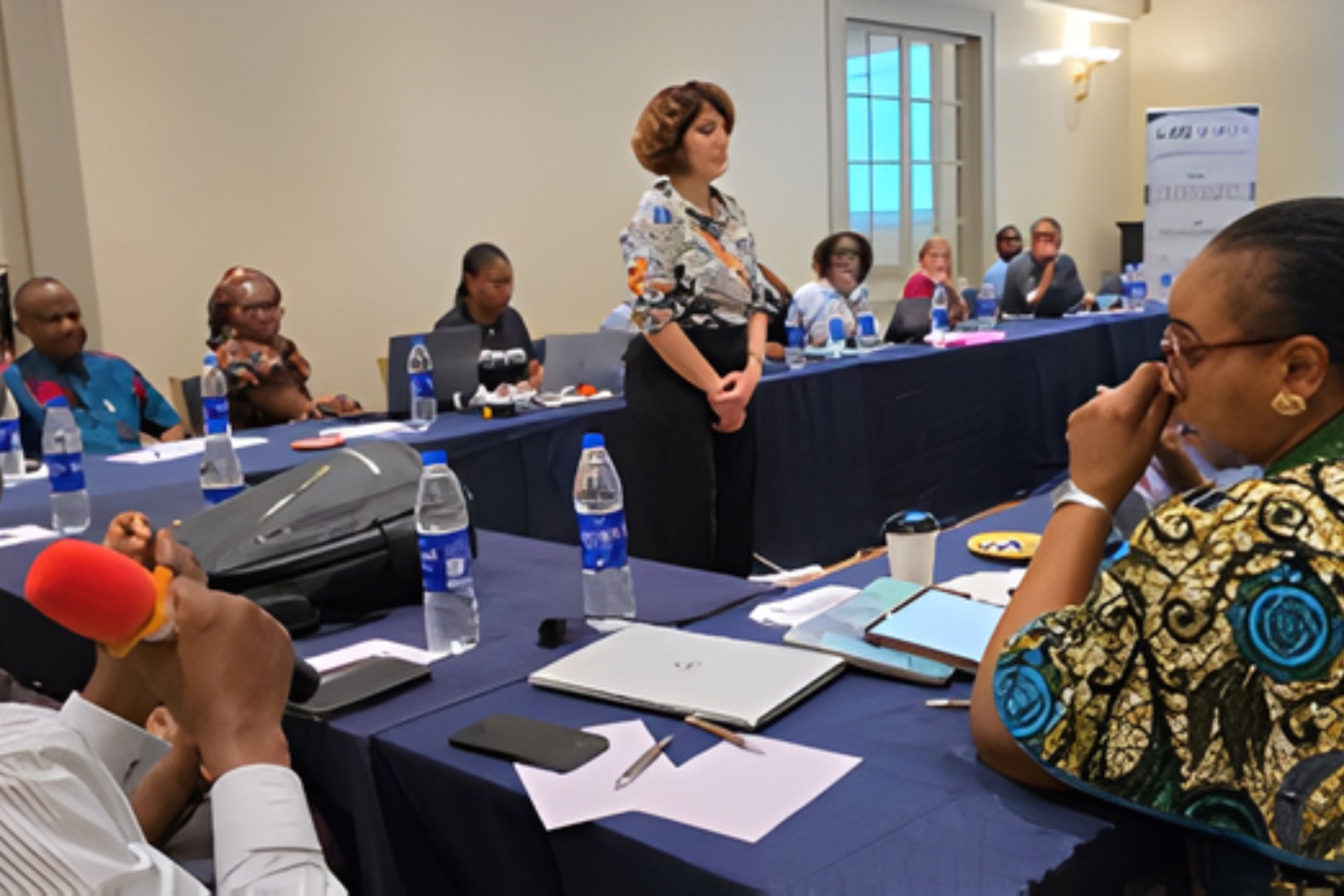
By Adedapo Adesanya
Nigeria has launched its first nationally representative survey on antimicrobial resistance to generate critical data to guide evidence-based policies, improve patient outcomes, and strengthen health system resilience.
Antimicrobial resistance occurs when bacteria, viruses, fungi, and parasites evolve to resist treatment, making infections harder to cure.
As a result, surveillance is essential to track resistance patterns, identify priority pathogens, and guide targeted interventions and with support from the World Health Organization (WHO) and other partners, the initiative marks a milestone in the country’s public health response.
Nigeria becomes the third country globally to partner with WHO on a national antimicrobial resistance survey. having been selected based on the country’s strong commitment to AMR surveillance, its updated WHO Nigeria NAP 2.0, and readiness to expand laboratory and data systems.
Africa’s most populous country ranks 20th globally for age-standardized mortality due to antimicrobial resistance . In 2019, an estimated 263,400 deaths in Nigeria were linked to it—more than the combined deaths from enteric infections, tuberculosis, respiratory infections, maternal and neonatal disorders, neglected tropical diseases, malaria, and cardiovascular diseases.
Globally, resistant infections in tertiary care settings cost between $2,371 and $29,289 per patient episode, extend hospital stays by an average of 7.4 days, and increase mortality risk by 84 per cent.
The survey will see the establishment of a national baseline on antimicrobial resistance prevalence to monitor interventions, assess the distribution, burden (morbidity, mortality, DALYs, cost), and diversity of AMR across regions and populations, as well as contribute to the global target of reducing AMR deaths by 10 per cent by 2030, in line with the political declaration endorsed at the 79th United Nations General Assembly in 2024.
It also seeks to strengthen routine antimicrobial resistance surveillance, including diagnostics, sample referral systems, and laboratory capacity.
Using WHO’s standardized methodology, the survey will run for 12–15 months and cover 40–45 randomly selected health facilities nationwide. Patients with suspected bloodstream infections (BSIs) will be identified using standard case definitions, and blood samples will be analysed in quality-assured laboratories.
Data will be collected across all age groups, covering clinical, demographic, laboratory, financial, and outcome indicators. Follow-up will occur at discharge, 28 days, and three months post-infection. The survey will sample approximately 35,000 patients suspected of BSIs to obtain around 800 isolates of the most common pathogens.
Dr Tochi Okwor, Acting Head, Disease Prevention and Health Promotion, Nigeria Centre for Disease Control and Prevention (NCDC) said, “With WHO’s support, we are confident the survey will generate the evidence needed to protect public health.”
WHO Representative in Nigeria, Dr Pavel Ursu, reaffirmed WHO’s commitment stating that ,“Nigeria is taking a decisive step toward combating AMR with an approach grounded in data, science, and measurable impact. This survey will provide the clarity needed to drive smarter policies, stronger surveillance, and better patient outcomes. Nigeria is laying the foundations for a resilient health system, one that protects lives, strengthens trust, and ensures that essential medicines remain effective for future generations.”
Adding her input, Dr Laetitia Gahimbare, Technical Officer at WHO Regional Office for Africa, added:“Strengthening surveillance enhances Nigeria’s capacity to detect and respond to AMR threats, supporting better patient outcomes, reinforcing health security, and building a resilient system.”
Professor Babatunde Ogunbosi, Paediatric Infectious Diseases Specialist at University College Hospital, Ibadan, highlighted the broader impact:, “This survey is about more than data. It’s about building national capacity for research, diagnostics, and policy. It integrates science into public health decision-making.”
Health
Our Vision Extends Beyond Offering Health Insurance Packages—SUNU Health
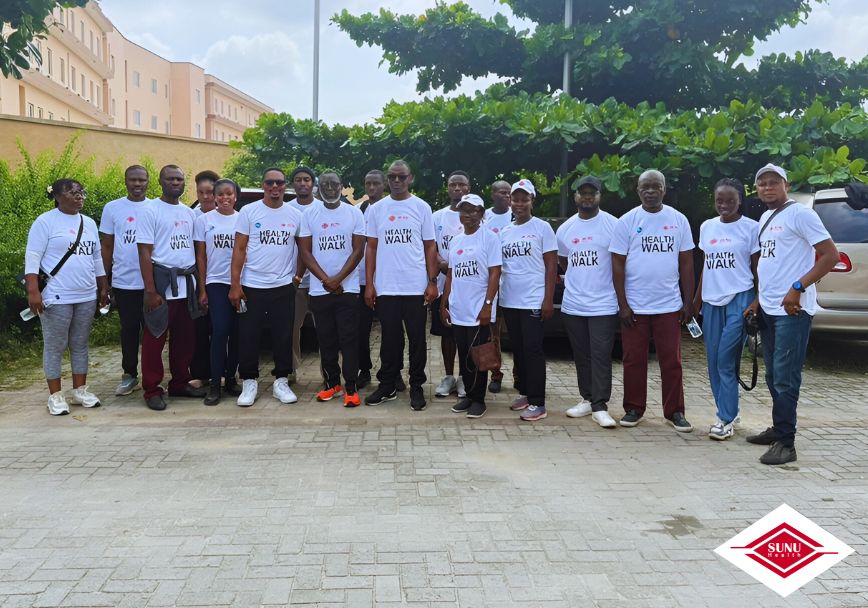
By Modupe Gbadeyanka
One of the leading Health Maintenance Organisations (HMOs) in Nigeria, SUNU Health, has said its philosophy is proactive wellness, noting that this was why it recently partnered with The Divine Physician and St. Luke Catholic Chaplaincy Centre for a community health initiative.
The chief executive of the company, Dr Patrick Korie, said, “SUNU Health’s vision extends far beyond merely offering health packages and insurance.”
“We are fundamentally interested in proactive wellness—preventing illness rather than just treating it. This annual exercise is a crucial part of that commitment, and we will continue to champion it for as long as we exist,” he stressed.
The medical practitioner led the company’s annual Health Walk in Lagos on Saturday, November 8, 2025. The event drew hundreds of health enthusiasts, including the Chaplain of the centre, Rev Fr. John Okoria SJ.
His active participation reinforced the spiritual and moral commitment to holistic well-being, proving crucial in mobilizing staff and community members, thereby ensuring the vital wellness message reached a broad and deeply engaged audience.
The health walk covered several major streets in Lagos, starting from Ishaga Road and navigating through Itire Road, Randle Avenue, Akerele, Ogunlana Drive, and Workers Street before concluding back at the starting point. Following the vigorous walk, participants engaged in a session of high-energy aerobics and other outdoor exercises, reinforcing the day’s focus on fitness.
“We are delighted to champion this vital health initiative alongside the Catholic Chaplaincy Centre LUTH/CMUL. The turnout was truly delightful, reflecting the community’s deep desire to embrace wellness.
“Collaborations like this amplify our message and commitment to the Nigerian community,” the Brand and Corporate Communications Lead at SUNU Health, Mr Samuel Olayemi, stated.
-

 Feature/OPED6 years ago
Feature/OPED6 years agoDavos was Different this year
-
Travel/Tourism9 years ago
Lagos Seals Western Lodge Hotel In Ikorodu
-

 Showbiz3 years ago
Showbiz3 years agoEstranged Lover Releases Videos of Empress Njamah Bathing
-

 Banking8 years ago
Banking8 years agoSort Codes of GTBank Branches in Nigeria
-

 Economy3 years ago
Economy3 years agoSubsidy Removal: CNG at N130 Per Litre Cheaper Than Petrol—IPMAN
-

 Banking3 years ago
Banking3 years agoFirst Bank Announces Planned Downtime
-

 Banking3 years ago
Banking3 years agoSort Codes of UBA Branches in Nigeria
-

 Sports3 years ago
Sports3 years agoHighest Paid Nigerian Footballer – How Much Do Nigerian Footballers Earn



